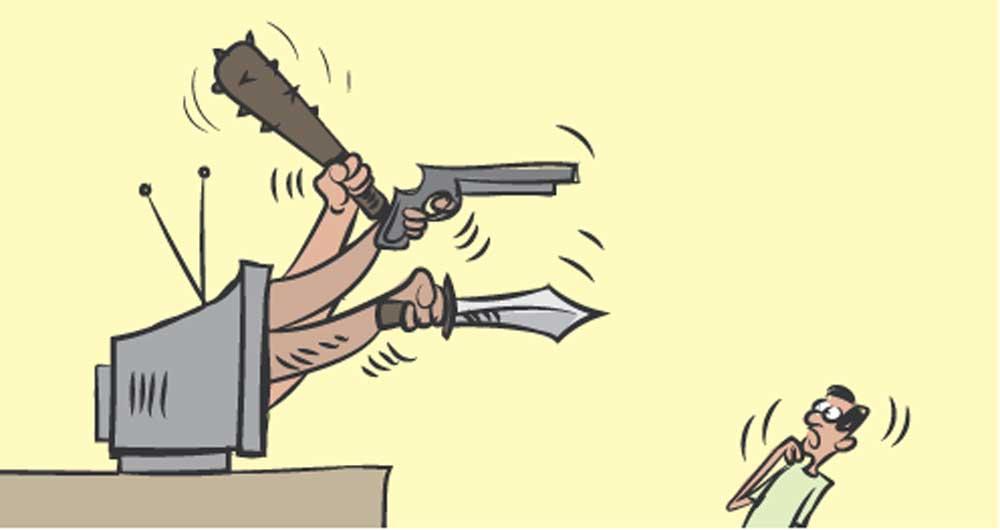10 Jul 2024 - {{hitsCtrl.values.hits}}

Unethical social media usage has become an unhealthy trend in light of recent events that took place in Sri Lanka. Experts have scrutinised social media page admins for revealing sensitive information. Mainstream media channels compete with one another when releasing CCTV footage while investigations are underway. Certain statements by individuals named as suspects are released to media even before law enforcement authorities come to any conclusions. This has set a bad precedent for the independence of investigations that are being conducted.
When two students fell to their death from a high-rise building in the heart of Colombo, many social media users were quick to judge that they both committed suicide. A photo taken at the time of the incidents shows a cigarette pack. Social media users once again judged that the two students were intoxicated. But the post-mortem report revealed otherwise. Such judgments and conclusions only cause more harm than good to both victims, victim-survivors, family, relatives and friends.
The dangers of revealing personal details on social media was highlighted during the recent shooting incident in Athurugiriya. The invitation including the names of guests expected to attend the opening of the tattoo studio was shared on Facebook three days prior to the incident. Therefore, several others including the main target had to be at the receiving end of the horrific incident.
Even in this case, certain mainstream media channels were quick to release CCTV footage perhaps even before law enforcement authorities could even analyse the incident. This leaves room for people to come to their own conclusions, without basing their conclusions on credible evidence.
Every citizen has a right to be informed with accurate facts. But opinionated news reporting facilitates a bias among viewers or readers. This is why unbiased reporting provides an opportunity for people to read between the lines and make an informed choice or decision.
Sri Lankans have already experienced the repercussions of biased news reporting in the past. Today, even though there are many tools to fact-check information including social media posts, many still continue to share them without checking the veracity of information. They believe that social media is a place to unwind, chill, criticise, attack and vent out their anger and frustrations without being judged. But there’s certainly more to social media than being a platform for entertainment.
Another issue is with regards to clickbait. People are often misled by false headlines. The main purpose of clickbait is to get maximum number of views or reach for a particular story. All these have become tools for monetisation on social media. But these tools also compel people to go after glamourised and sensationalised news. Perhaps this is why people are more inclined to look for a ‘gossip’ in any incident. They would be more excited to know whether two people were dating, their previous relationships and other not-so-newsworthy details.
Sri Lanka is heading towards an election and people are still in doubt about electing a leader for the next five years. It is in such situations that an informed choice is necessary. The media, also known as the Fourth Estate should act responsibly in providing verified, credible and accurate information to the public. Now that social media is also included this pillar of democracy, it should allow people to think on broader terms rather than narrowing their mindsets further. It is the effective use of media, either negative or positive- that would ultimately convince people to place their vote on an individual who would either steer the country forward or back to square one.
24 Nov 2024 2 hours ago
24 Nov 2024 5 hours ago
24 Nov 2024 6 hours ago
24 Nov 2024 6 hours ago